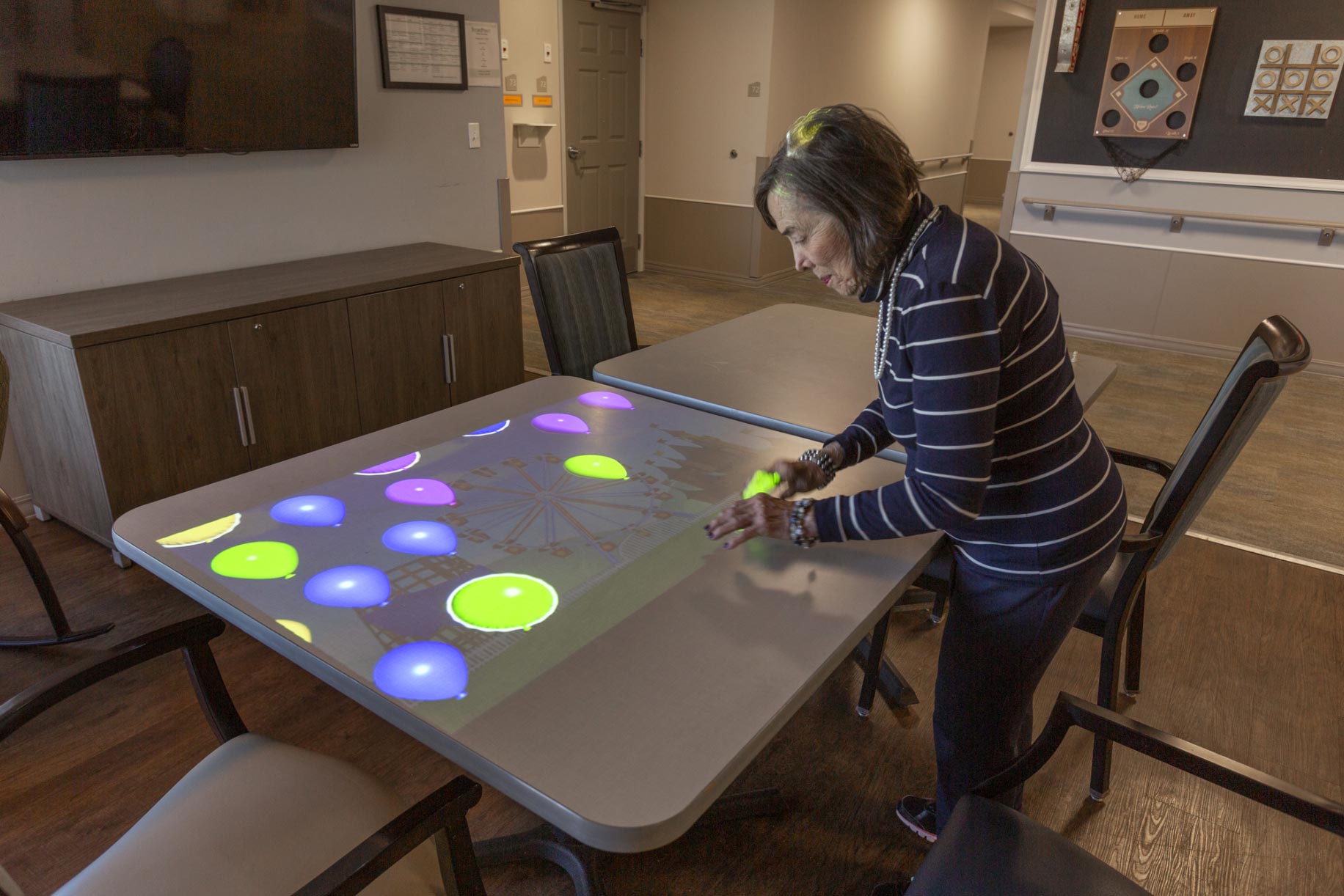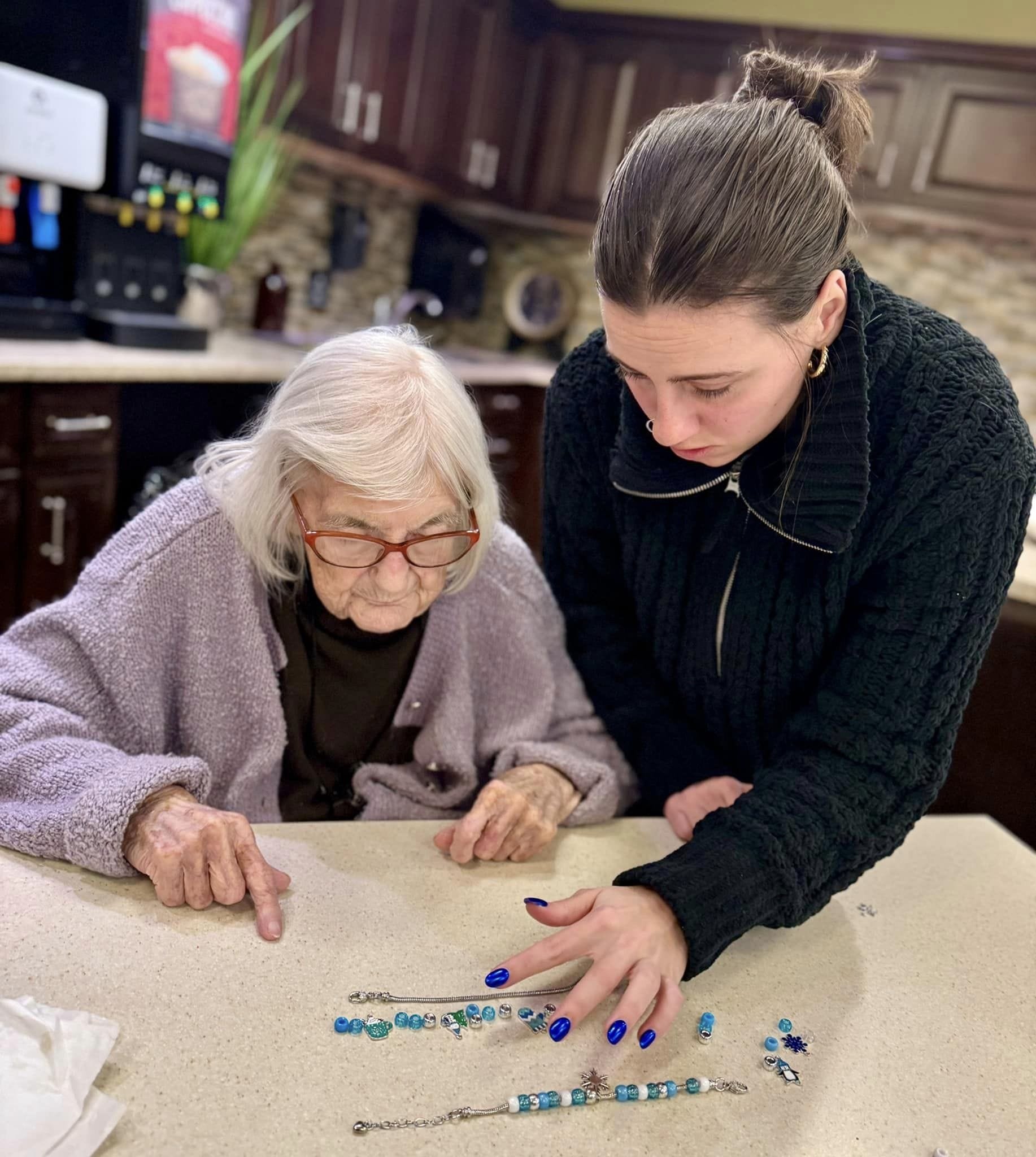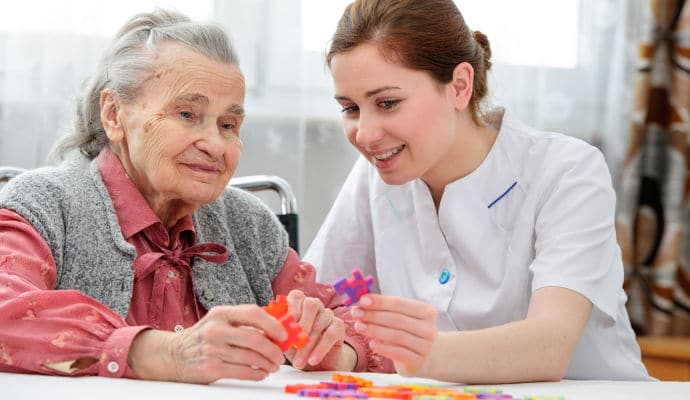Individualized Solutions for Families Looking For Alzheimers Care Charlotte
Individualized Solutions for Families Looking For Alzheimers Care Charlotte
Blog Article
Producing a Safe and Encouraging Environment for Alzheimer's Care
The production of a risk-free and encouraging atmosphere for people with Alzheimer's is extremely important in improving their lifestyle. This involves not only physical adjustments within the home, such as lessening dangers and incorporating familiar aspects, but also the implementation of structured regimens and meaningful tasks that satisfy their cognitive demands. Additionally, understanding the emotional and psychological measurements of treatment can substantially influence their feeling of protection and link. Checking out these complex techniques can disclose critical understandings right into reliable caregiving strategies that may change the everyday experiences of both caretakers and people.
Recognizing Alzheimer's Needs
Regularly, people with Alzheimer's condition display a variety of needs that need customized approaches to care. As the condition progresses, cognitive decline manifests in various ways, influencing memory, thinking, and also the ability to carry out everyday tasks. Caregivers should recognize these evolving demands to give suitable assistance and guarantee a higher quality of life for those influenced.
One critical aspect of understanding Alzheimer's requirements is acknowledging the significance of regular and knowledge. Individuals frequently find comfort in recognized patterns, which can reduce anxiety and confusion. Caretakers should make every effort to develop organized day-to-day routines that incorporate significant activities straightened with the person's abilities and passions.
Furthermore, efficient interaction is vital. People with Alzheimer's may struggle to share themselves or comprehend complicated language. Caregivers ought to employ straightforward, clear language, usage non-verbal hints, and method active listening to cultivate understanding and link.
Last but not least, emotional and social needs can not be ignored. Giving chances for social communication and maintaining partnerships can significantly boost psychological health. Caregivers should urge involvement in community tasks or family celebrations, advertising a sense of belonging and objective. Recognizing these diverse demands is vital for developing a helpful treatment setting.
Creating a Safe Home
Creating a safe home for individuals with Alzheimer's condition is important to decreasing threats and advertising self-reliance. The layout of the space ought to focus on security while allowing for personal comfort. First, remove potential risks such as loosened carpets, sharp things, and mess, which can lead to falls or crashes. Make sure that pathways are clear and well-lit, as appropriate lighting lowers disorientation and boosts wheelchair.
Including flexible functions is likewise essential. Set up grab bars in shower rooms and near staircases, and take into consideration utilizing non-slip mats in wet locations. Furthermore, utilizing contrasting shades for walls and floors can help in identifying areas, aiding to reduce confusion.
Experience is very important for individuals with Alzheimer's. Customizing the environment with acquainted things and photographs can enhance a feeling of belonging and security - Alzheimers Care Charlotte. It is also valuable to have a marked area for daily activities, such as analysis or crafting, which can give structure to their day
Finally, implementing a safe exterior area permits risk-free exploration while attaching with nature. By attentively making the home environment, caregivers can significantly enhance the lifestyle for individuals living with Alzheimer's disease.
Enhancing Communication Abilities

Non-verbal communication, including face expressions, motions, and touch, plays an important duty in sharing empathy and understanding. Keeping eye anonymous contact and a tranquil behavior can improve the convenience degree of the individual, promoting a sense of safety.
Furthermore, it is necessary to exercise active listening. This includes being fully existing, showing perseverance, and enabling the individual to express themselves without disruption. Repeating might be needed; caregivers need to be prepared to take another look at questions or subjects, as individuals with Alzheimer's may fight with memory recall.
Additionally, using aesthetic aids or hints, such as photographs or familiar items, can assist in acknowledgment and engagement. Inevitably, boosting interaction abilities has to do with constructing trust and developing an environment where people really feel listened to, valued, and recognized, thus improving their lifestyle.
Encouraging Social Communication
Cultivating purposeful social communications can greatly enhance the wellness of people with Alzheimer's disease. Involving with others not only aids fight sensations of seclusion but also stimulates cognitive feature and psychological health. Structured social activities, such as group games, arts and crafts, or music treatment, produce chances for citizens to attach with peers and caretakers, which can bring about improved mood and minimized anxiety.
Producing a welcoming setting that motivates socialization is vital. This can be accomplished by preparing public spaces that help with communication, such as relaxing seating locations or activity spaces. In addition, incorporating acquainted and culturally appropriate activities can spark memories and encourage engagement, enabling people with Alzheimer's to really feel even more linked to their past experiences.
Moreover, caregivers must be educated to acknowledge and promote social engagement among citizens. By focusing on social interaction, we can substantially improve the lives of those living with Alzheimer's, promoting a feeling of community and belonging.
Sustaining Caregiver Health

To sustain caregivers, organizations ought to use regular training and educational sources to enhance their understanding of Alzheimer's illness and caregiving strategies. Providing access to reprieve care solutions allows caregivers to take necessary breaks, reducing Click This Link stress and tiredness - Alzheimers Care Charlotte. Additionally, promoting a neighborhood through support system can help with emotional sharing and the exchange of practical recommendations among caregivers, creating a network of shared support
Mental wellness resources, such as counseling solutions, can additionally be vital in attending to the emotional toll caregiving can take. By prioritizing caregiver health, we produce a more sustainable caregiving setting that not only benefits the caregivers themselves yet also enhances the general quality of treatment obtained by individuals with Alzheimer's. Inevitably, sustaining caregivers is a crucial part in fostering a reliable and thoughtful treatment setup.
Final Thought
To conclude, the creation of a safe and encouraging atmosphere for individuals with Alzheimer's is necessary to enhancing their high quality of life. By focusing on safety and security through thoughtful style, cultivating emotional health with acquainted elements, and advertising interaction through structured regimens, caregivers can substantially influence the general experience of those affected by this problem. Furthermore, supporting caretaker wellness is essential, as it ultimately adds to an extra reliable and compassionate treatment environment.
Repetition may be necessary; caretakers ought to be prepared to revisit questions or subjects, as people with Alzheimer's may struggle with memory recall.

Report this page